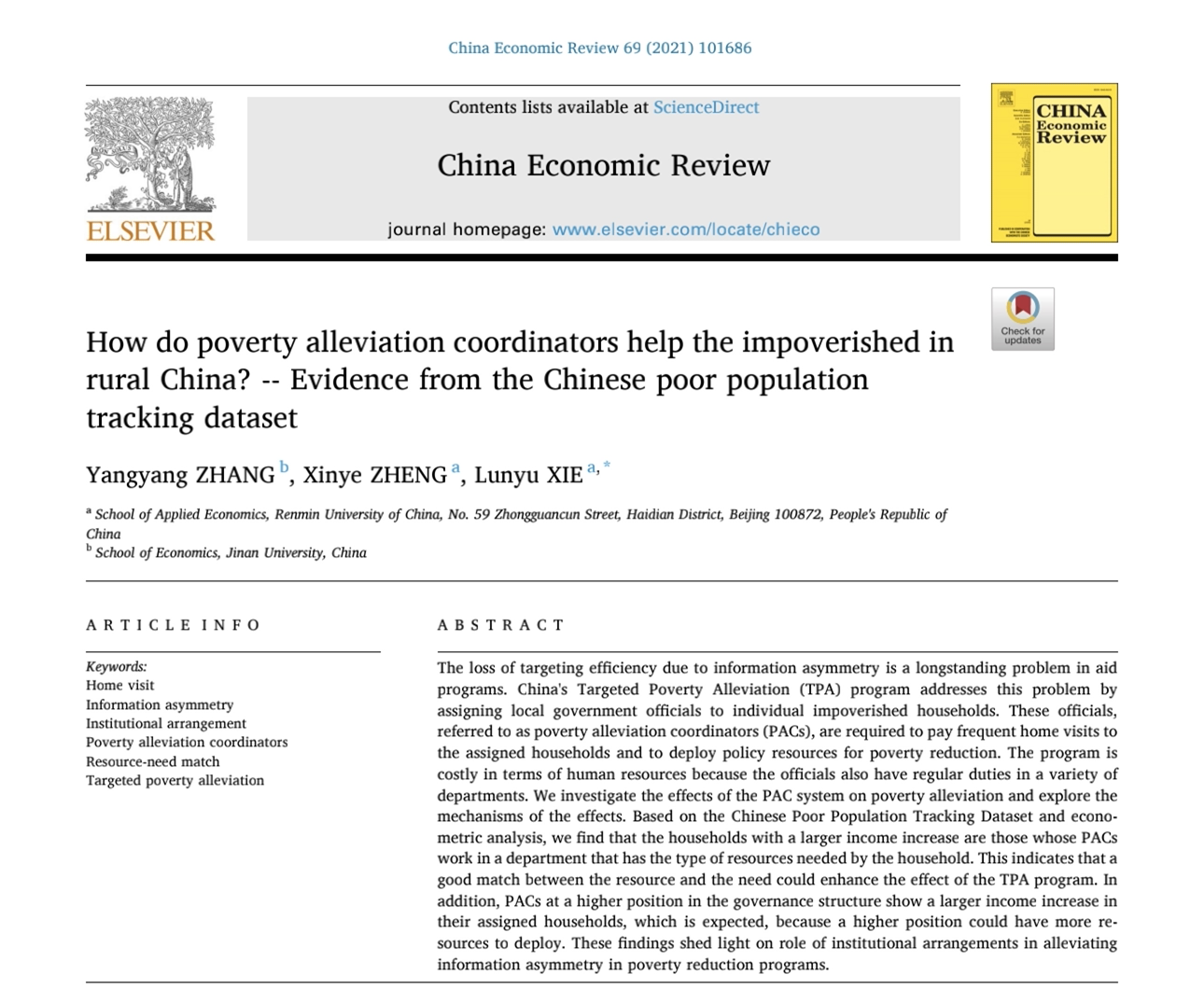Dr. Xinye Zheng and Dr. Yunlun Xie recently had a paper published in the China Economic Review.The paper titled‘How do poverty alleviation coordinators help the impoverished in rural China? -- Evidence from the Chinese poor population tracking dataset’, was coauthored with Yangyang Zhang from School of Economics, Jinan University.

Abstract
The loss of targeting efficiency due to information asymmetry is a longstanding problem in aid programs. China's Targeted Poverty Alleviation (TPA) program addresses this problem by assigning local government officials to individual impoverished households. These officials, referred to as poverty alleviation coordinators (PACs), are required to pay frequent home visits to the assigned households and to deploy policy resources for poverty reduction. The program is costly in terms of human resources because the officials also have regular duties in a variety of departments. We investigate the effects of the PAC system on poverty alleviation and explore the mechanisms of the effects. Based on the Chinese Poor Population Tracking Dataset and econometric analysis, we find that the households with a larger income increase are those whose PACs work in a department that has the type of resources needed by the household. This indicates that a good match between the resource and the need could enhance the effect of the TPA program. In addition, PACs at a higher position in the governance structure show a larger income increase in their assigned households, which is expected, because a higher position could have more resources to deploy. These findings shed light on role of institutional arrangements in alleviating information asymmetry in poverty reduction programs.
Other information
Publication Date:2021
Journal:China Economic Review
Journal Issue: 69(2021)
DOI:https://doi.org/10.1016/j.chieco.2021.101686
Read the paper here.